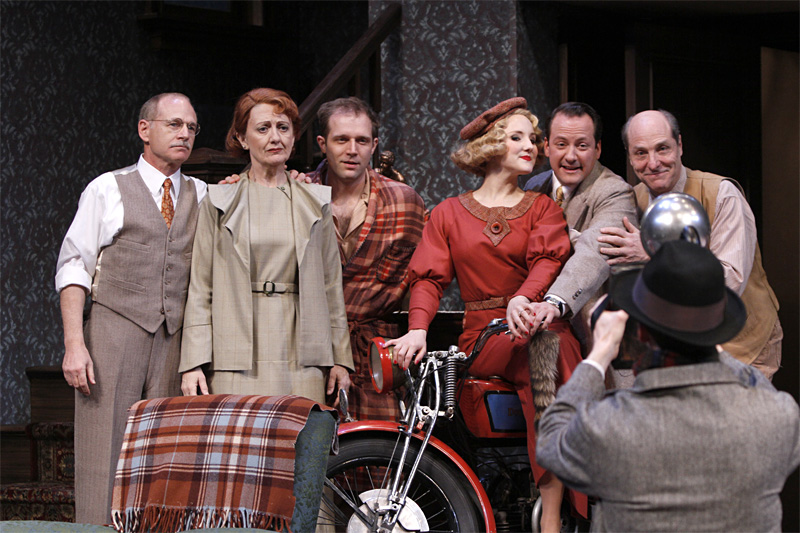At certain moments in history, the conflict between selfish and communal inclinations becomes more than an academic rivalry: It becomes a dogfight. And a post-crash Depression is one of those times.
In this crisp production of Clifford Odets’ 1935 play, the home of Leo Gordon (Michael Mantell) and his wife, Clara (Lori Larsen), bears signs of waning prosperity. Generosity is a staple of the Gordons’ identity, but they’re rarely on the receiving end. Their living room streams with visitors, and their basement hosts the Depression’s homeless. Mortgaging their house to support their ailing handbag business has left them vulnerable, too. Leo is a “softie” on labor issues, and crooked business partner Sam Katz (Bradley Goodwill) delivers the coup de crass knockout punch. Still, Leo is determined to resolve his financial problems without resorting to fraud or the exploitation of others, even as the system seems rigged against that kind of integrity.
Meanwhile, the Gordons’ oldest son Ben (Shawn Law), who won an Olympic medal for running, has seen his “career” quashed by a bum heart, and he’s not very good at anything else. Younger son Julie (Eric Pargac) sees his stock-market acumen blunted by a mysterious illness. And daughter Pearl (Erin Bennett), who once studied piano with “a pupil of the great Leschetizky” (as her father likes to boast), practices with near-autistic focus.
With 24 characters, the busy set sometimes feels like Grand Central Station, and the plot proliferates like a novel over the course of three acts and years. Tom Buderwitz’s corner-thrust stage offers four avenues for the comings and goings, the most creative of which is a staircase to the home’s second floor, where we can barely make out a hallway and ghostly rooms behind a translucent scrim of period wallpaper. The fine “mixed” cast—half Seattleite, half imported from California along with director Dámaso Rodriguez—machine-guns the jaunty period language (“. . . think I was born yesterday to let you kid the bib off me like this?”), but meanings are clear from emotional tenor and context.
Larsen is particularly affecting as Clara, who moves sometimes with the slouchy languor of a socialite, other times with the quick fist of a street urchin. Big-hearted but pugnacious, regal by nature but ungrammatical, ferociously protective but helpless, she seems to believe all can be cured with her generic prescription, “take a piece of fruit.” Tim Gouran’s Kewpie is a riveting scene-stealer as Ben’s resentful, law-flouting friend. He’s cocked, looking like a sleek gun but going off more like a grenade in Ben’s face. As Ben, Law vibrates with happy-go-lucky playboy energy until his failure to earn a living robs him of way more than his dignity.
Mantell’s Leo, the bland foil to Larsen’s colorful Clara through most of the play, finally rises to thrilling oratory late in the story: “Heartbreak and terror are not the heritage of mankind! The world is beautiful. No fruit tree wears a lock and key . . . Ohhh, darling, the world is in its morning . . . and no man fights alone!” If this sounds a little utopian, a little communist, even—well, Odets flirted with the party briefly in 1934. The character of Mr. Pike (played here by the physically gigantic L.A.–based actor Herschel Sparber) espouses the red slant even more overtly, addressing others as “Citizen!” and exhorting “We are the people, and the people is the government, and tear them down from their high places if they dast do what they did in 1914 to 1918.” But while Odets’ play has been billed as “relevant” to today’s times, it provides little in the way of explanations, rationalizations, or solace. Rather than satisfactions of this sort, the play’s complicated story yields a series of moral question marks.








